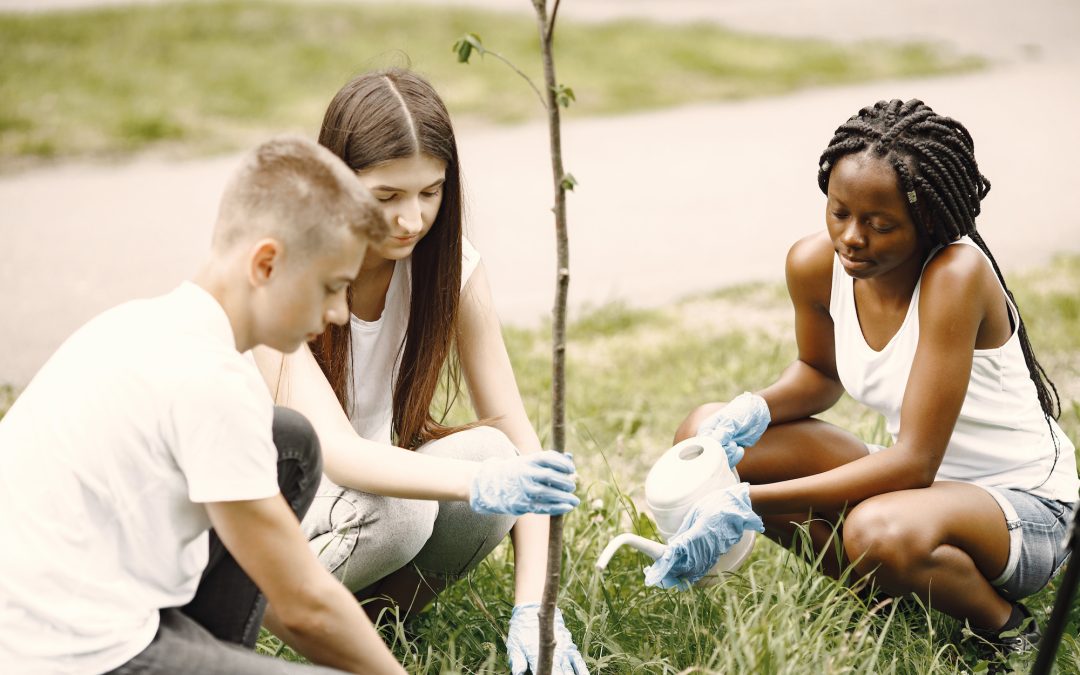Summer can be a much-needed opportunity for rest and relaxation after the close of another school year. It can also be a chance for students to continue to expand their horizons, explore their interests, and enhance their college application profile.
There’s one thing that your student can keep in the back of their mind regardless of how they end up spending their summer: potential topics for their personal statement. The Common App requires at least one personal essay as part of the standard college application. Summer adventures can provide a great source of inspiration for these essays—whether your student worked part-time or spent time at a subject-specific sleepaway camp, these activities can all be opportunities for learning more about the world and themselves.
Colleges like to see students who have diverse interests, but they are usually even more compelled by applicants who show a certain level of commitment to their personal passions. For example, a student is interested in studying film even though their high school doesn’t offer any film courses, they may choose to pursue this interest outside of the traditional classroom by enrolling in a young filmmakers’ program. This kind of activity not only shows a commitment to learning more about the subject, but also conveys the level of effort the student was willing to put in by researching and applying to an unaffiliated program. The next year, that same student might start a club for cinema enthusiasts at their high school and organize special movie-screening events. This evolution of a particular passion, combining both personal growth and community involvement, is exactly what admissions officers like to see.
Last year, we sent out a newsletter with a list of suggested summer programs that might interest your student, focusing on subjects from economics to performing arts. We encourage you to revisit this list, as well as the summer program database TeenLife, and contact your SFC advisor if something looks particularly compelling.
For juniors especially, it’s a good idea to start planning the summer in advance because certain programs fill up very quickly. Most competitive programs begin taking applications in January/February.
If a structured program doesn’t appeal to your student, there are plenty of other ways to make the most of their summer break. Additionally, most of these programs are 1-3 weeks in length, so there’s still a lot of summer left. Here are some suggestions for having a productive, meaningful summer, with or without attending a program.
1. Working
A part-time job can be an opportunity for learning a number of skills regardless of what the position actually entails: discipline, conflict resolution, teamwork, etc. In addition to financial responsibility and experience, your student may gain a new perspective about the working world after having their own job.
2. Volunteering/Outreach
Students don’t have to found their own charitable organization or travel abroad to construct a school in order to affect positive change. Encourage your student to consider different options for local community outreach—this experience can provide an opportunity for introspection as well as provide inspiration for their personal statement once they begin their college applications.
3. Keeping a Journal
Not every high school student knows exactly who they are or what they want to be—and that’s totally okay! One way for your student to gain self-knowledge during their down time is by keeping a journal. There are countless ways to approach this: your student could keep a gratitude journal, or they could record their dreams, or they could simply maintain a record of their daily activities and thoughts. By taking the time to reflect on themselves now, your student may feel more confident when it comes to asserting their goals for the future during the college application process. Plus, at the end of the summer, they’ll have a tangible archive of their thoughts and how they spent their time that could be a useful source of information when writing their college essay.
4. Researching Colleges
Summer visits to colleges can show you the campuses, but it won’t necessarily give you the most accurate impression of how the atmosphere feels during the school year. Your student should really dig into the schools’ websites, explore the various departments, course description guides and professors in order to get a complete picture. Knowing as much as possible about the colleges to which they’ll apply provides a student an advantage when completing college-specific supplemental essays. If a certain school piques your student’s interest during this early exploration, consider planning another tour during the school year.

